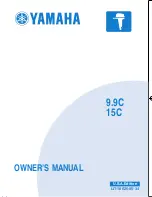
- 72 -
Primary/ Secondary / Master/ Slave PIO
The four IDE PIO (Programmed Input/ Output) fields let you set a PIO
mode (0-4) for each of the four IDE devices that the onboard IDE inter-
face supports. Modes 0 through 4 provide successively increased
performance. In Auto mode, the system automatically determines the
best mode for each device.
Ø
The choice: Auto, Mode 0, Mode 1, Mode 2, Mode 3, or Mode 4.
Primary/ Secondary / Master/ Slave UDMA
Ultra DMA100 implementation is possible if your IDE hard drive
supports it and the operating environment includes a DMA driver
(Windows 95 OSR2 or a third-party IDE bus master driver). If both of
your hard drive and your system software support Ultra DMA100,
select Auto to enable BIOS support.
Ø
The choice: Auto or Disabled.
VIA OnChip PCI Device
Options are in its sub-menu.
Press <Enter> to enter the sub-menu of detailed options.
VIA-3058 AC97 Audio
This item allows you to control the onboard AC 97 audio.
Ø
The choice: Auto or Disabled.
VIA-3068 MC97 Modem
This item allows you to control the onboard MC97 modem. Disable this
item if you are going to install an external modem.
Ø
The choice: Enabled or Disabled.
Super IO Device
Options are in its sub-menu.
Press <Enter> to enter the sub-menu of detailed options.
Onboard FDC Controller
Select Enabled if your system has a floppy disk controller (FDC) in-
stalled on the system board and you want to use it. If you install add-on
FDC or the system has no floppy drive, select Disabled in this field.
Ø
The choice: Enabled or Disabled.














































